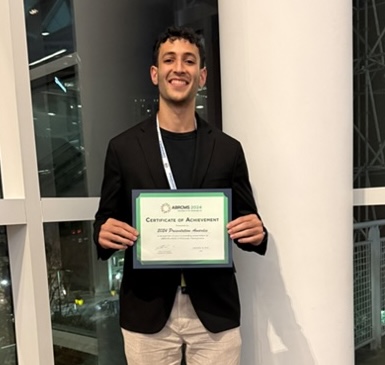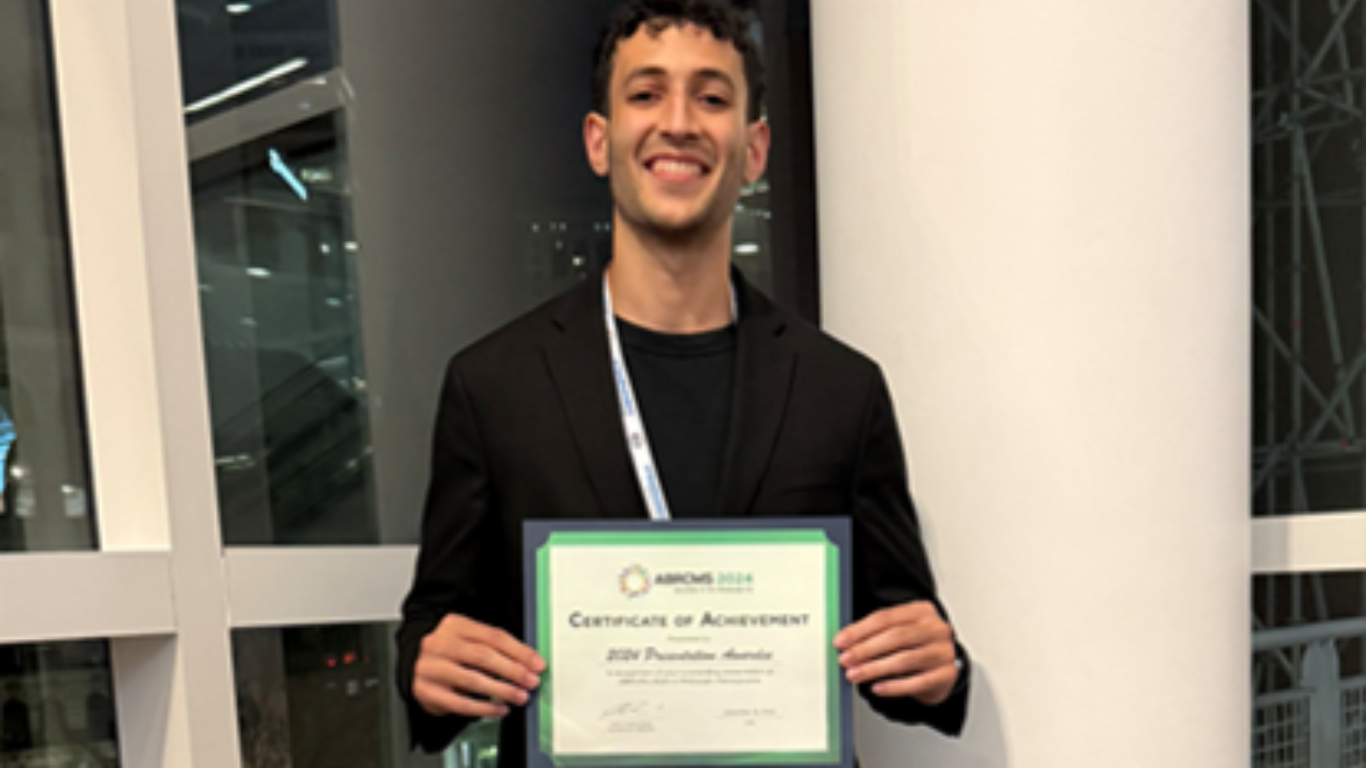Meet Karam Abilmouna, a junior studying Behavioral Neuroscience at the College of Arts, Sciences & Education (CASE). As a MARC U*STAR junior, Karam researches parkinsonism under the guidance of Dr. Tomás R. Guilarte, dean of FIU Stempel College and director of the Brain, Behavior and the Environment Lab.
This fall, Karam won the best poster presentation award at the 2024 Annual Biomedical Research Conference for Minoritized Scientists (ABRCMS) in the Physiology & Pharmacology category.
ABRCMS is one of the largest professional conferences for underrepresented students in STEM, offering opportunities for networking, professional development, and showcasing groundbreaking research.

What motivated you to pursue your area of study?
My passion for neuroscience began before college when I watched my grandfather struggle with Alzheimer’s disease and seeing the toll it took on my family. Upon choosing to study neuroscience and knowing that I wanted to study neurodegenerative diseases, I started researching online into the different neuroscience labs at FIU. I came across Dr. Guilarte’s lab through this manner, and I was really attracted to his due to the cool projects they had listed and the fact that it was a lot of biochemistry-based work. My goal is to better understand the brain and contribute to solutions for neurological disorders.
Talk about your project, what it was about, the positive impact you’d love to see the outcomes of your research have in your field.
My project focused on studying neurodegeneration within the cerebellum of a mouse model for manganese-induced dystonia-parkinsonism. By using various methods to analyze changes to both microglia and neurons, we found evidence of degeneration, which gives us further insight into how this disease progresses. My hope is that our work will eventually lead to better, more preventative treatments for patients suffering from this condition.
What does it mean for you to win this award?
Winning this award is an incredible honor and a reminder of how rewarding hard work can be. This semester, I spent countless hours on an image analysis for this project, and it is humbling to see those efforts recognized. Additionally, as a Lebanese-American, this contributes to a broader narrative of resilience, and I hope to inspire others from my community to follow their passions and make an impact.
How would you love for your award/presentation to impact your field?
I hope this award highlights to other students the importance of neurotoxicology research and inspires them to go on and build on our findings.
What message do you have for fellow students who may feel inspired by your story?
If you are passionate about a specific issue or area of study, pursue it wholeheartedly. Even if your contributions feel small, they are valuable steps in advancing knowledge and making an impact. We stand on the efforts and sacrifices of those who came before us, so it is up to us to build on their legacy and pave the way for future generations.

